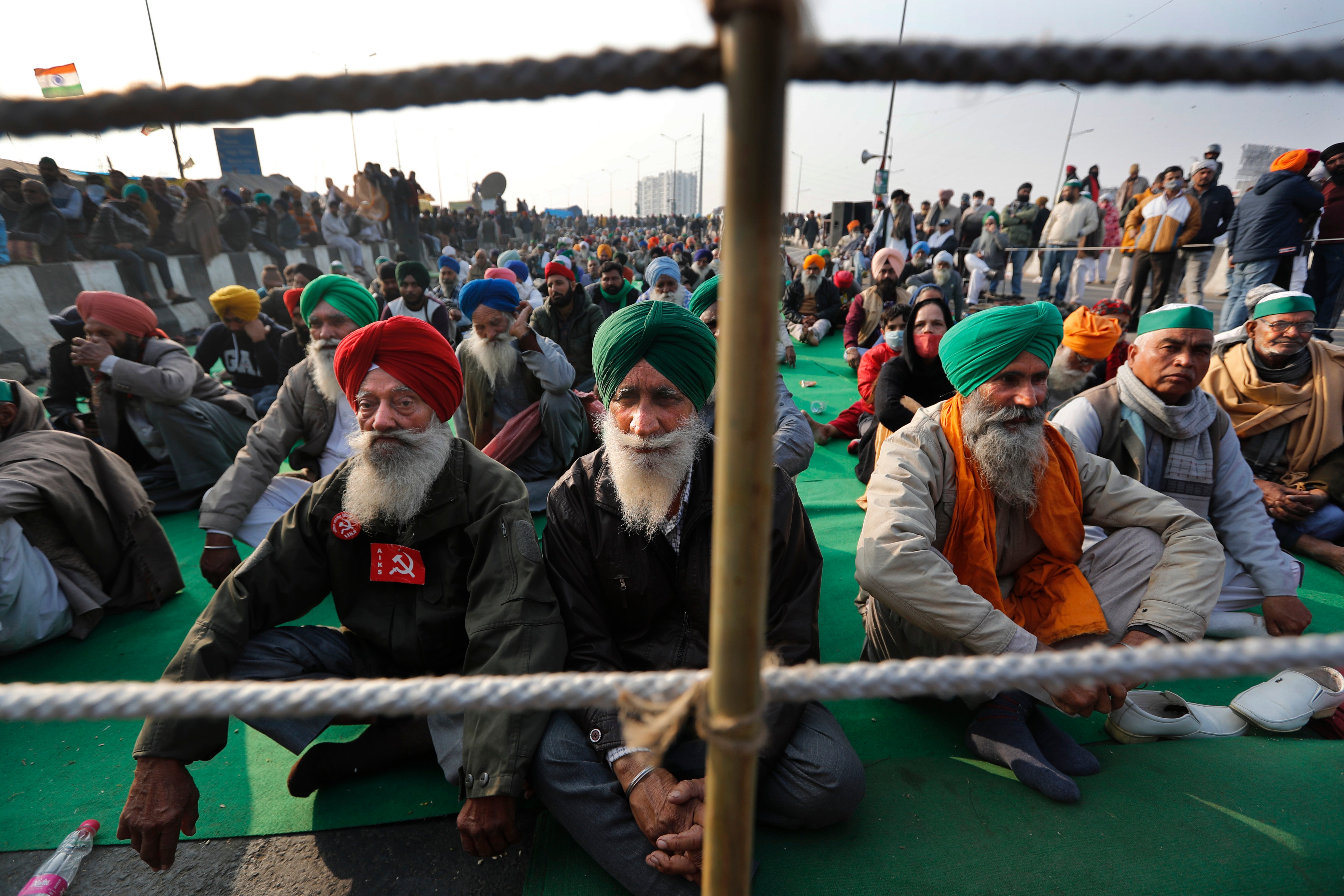Protesting Indian farmers, government reach partial accord
Representatives of the Indian government and tens of thousands of protesting farmers have met after a hiatus of three weeks and reached agreement on two of the four issues that caused the farmers to blockade highways near the capital

Your support helps us to tell the story
From reproductive rights to climate change to Big Tech, The Independent is on the ground when the story is developing. Whether it's investigating the financials of Elon Musk's pro-Trump PAC or producing our latest documentary, 'The A Word', which shines a light on the American women fighting for reproductive rights, we know how important it is to parse out the facts from the messaging.
At such a critical moment in US history, we need reporters on the ground. Your donation allows us to keep sending journalists to speak to both sides of the story.
The Independent is trusted by Americans across the entire political spectrum. And unlike many other quality news outlets, we choose not to lock Americans out of our reporting and analysis with paywalls. We believe quality journalism should be available to everyone, paid for by those who can afford it.
Your support makes all the difference.Representatives of the Indian government and tens of thousands of protesting farmers held talks on Wednesday after a hiatus of three weeks and reached agreement on two of the four issues that caused the farmers to blockade highways near the capital, officials said.
Agriculture Minister Narendra Singh Tomar said he and the leaders of 40 farmers’ groups agreed to meet again on Jan. 4 to resolve the remaining two key issues — the farmers demands that three new agriculture reform laws be repealed and that the government maintain a guaranteed minimum price for wheat, rice and some other crops.
Tomar said he appealed to the farmers to immediately end their blockade of the highways but their leaders declined.
Ignoring the coronavirus pandemic, the farmers have been blockading highways connecting New Delhi to northern India for nearly five weeks, obstructing transportation and dealing a blow to manufacturing and businesses in the north.
Paramjit Singh, a leader of the farmers, said there was a positive shift in the government’s attitude toward their demands in the more than five hours of talks Wednesday from earlier meetings.
He said he was confident of a positive outcome during next week’s talks, but that the farmers will continue their blockade until all of their demands are met.
Tomar said the two sides agreed Wednesday that the government would continue its subsidy of electricity for irrigating farms and that farmers would not be punished for burning crop residues, a cause of air pollution.
Farmers fear the government will stop buying grain at minimum guaranteed prices and that corporations will then push prices down under the new laws. The government said it is willing to pledge that guaranteed prices will continue.
The farmers say the new laws will lead to the cartelization and commercialization of agriculture and make farmers vulnerable to corporate greed.
Indian media reports said protesters in northern Punjab state damaged more than 1,000 mobile phone towers and telecom equipment belonging to Reliance Industries Ltd., a private conglomerate, which they say will benefit from the new laws.
Tomar appealed to the farmers not to damage equipment, saying it causes hardship to people.